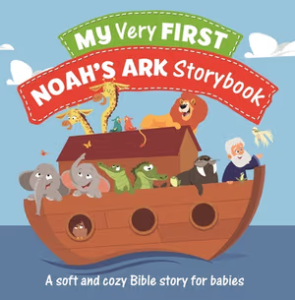April 14, 2024
Christianity 102
Facilitator: Owen Carson
Bible Stories for Grown-Ups
By Josh Scott
TableofContents
Hello, DREAMERS (I keep using that term, so we reflect on the lessons from our study of Joseph, the dreamer; and also because this idea of acting on dreams was an essential aspect of Dr. King’s message). We will gather again on Sunday 14 April. You have a choice of joining us in-person for our class time or you can use the GoToMeeting® software (YES, there will be donuts this week).
======= Christianity 102 On-Line Class Connection Information ======
For internet access with video, you need to have the GoToMeeting® application on your computer, smart phone, or tablet…it’s free to download and use.
We begin our new study based on the book Bible Stories for Grown-Ups by Josh Scott on Sunday, 14 April 2024 from 9:15 AM – 10:30 AM (CDT)
We meet in the music rehearsal room, and you can stay as long as you want to. You can join us on-line starting about 9:10 a.m.—try to be online before 9:15. If you have trouble connecting, call me at 314-306-4521 on Sunday morning.
https://global.gotomeeting.
We continue to examine our internet connections to see if video streaming can be improved.
You can also dial in using your phone to participate using only a voice connection.
United States (Toll Free): 1 866 899 4679
Access Code: 379-193-797 (Enter the # sign following the access code)
========= Announcements and Other Information =========
In-person worship continues at St. Andrew UMC. In-person worship services are at both 8:00 and 11:00. Masks/face coverings are OPTIONAL for in-person worship. The 8:00 a.m. service is live streamed through Facebook and the church’s website (www.saintandrewumc.net).
The Project Hope Food Pantry can always use donations of nonperishable food items-canned corn, canned tomatoes, soup (canned or in pouches), dried potatao products, pasta sauces in plastic jars, macaroni and cheese (the kind that does not require the use of milk), and breakfast cereal would be great items to donate.
======= Getting Ready for This Week =======
The video teaching lessons for Bible Stories for Grown-Ups are available through the church’s Amplify subscription—contact the church office for specific access information. There are six lessons and six videos with each video being about 12 minutes long.
“Around the room time”–A time to share our Joys and Concerns as we stay in touch as community with personal updates with one another: joys, prayers, needs, laughs, dreams, travel plans and experiences, gardening status, requesting help, etc.
What is a favorite book that you have read? What genre was the book? Why is it still a favorite? Have you read other books by the same author? Does the author always have the same point-of-view or emphasis in all the books you might have read?
========= Preventing the Flood: The Story of Noah =========
What are some of your early memories of hearing/learning stories from the Bible?
What are the main images or mental pictures you have of the story of Noah and the flood?
Josh Scott writes “we all bring lenses” to reading the Bible: “…the moment we begin talking about what a passage of the Bible means, we are now firmly in the realm of interpretation.” Do you agree with this? How might our gender, ethnicity, economic situation, political affiliation, level of education, family background influence what we take from Biblical narratives?
Scott summarizes the “gown-up lens” as including: curiosity, taking the Bible seriously, paying attention to the historical and cultural contexts for the narratives, and discerning how the Bible applies to our present context. Can you provide other ideas for a “grown-up lens”? What is important for you when you are doing your Bible studies?
Were you previously aware of the existence of other “flood stories” from outside the Bible? How does the idea of parallel stories affect your understanding of the Noah story?
Do you agree with Scott that the main theme of this story is: “a tale about the consequences of human violence”…of us doing harm to one another? Why or why not? How would you summarize the theme of the story?
Josh Scott offers two “arks” for us today to prevent the flood that is being caused by the modern violence of humans: (1) empathy and (2) compassion. Which of these is easier for you to apply to the people/conditions you confront in your life?
Scott professes optimism that we can “turn the tide and avoid our own Great Flood”. Are you similarly optimistic? What gives you hope? And, how do you personally have a role in preventing such a “great flood”?
thanks
owen carson
![]()

